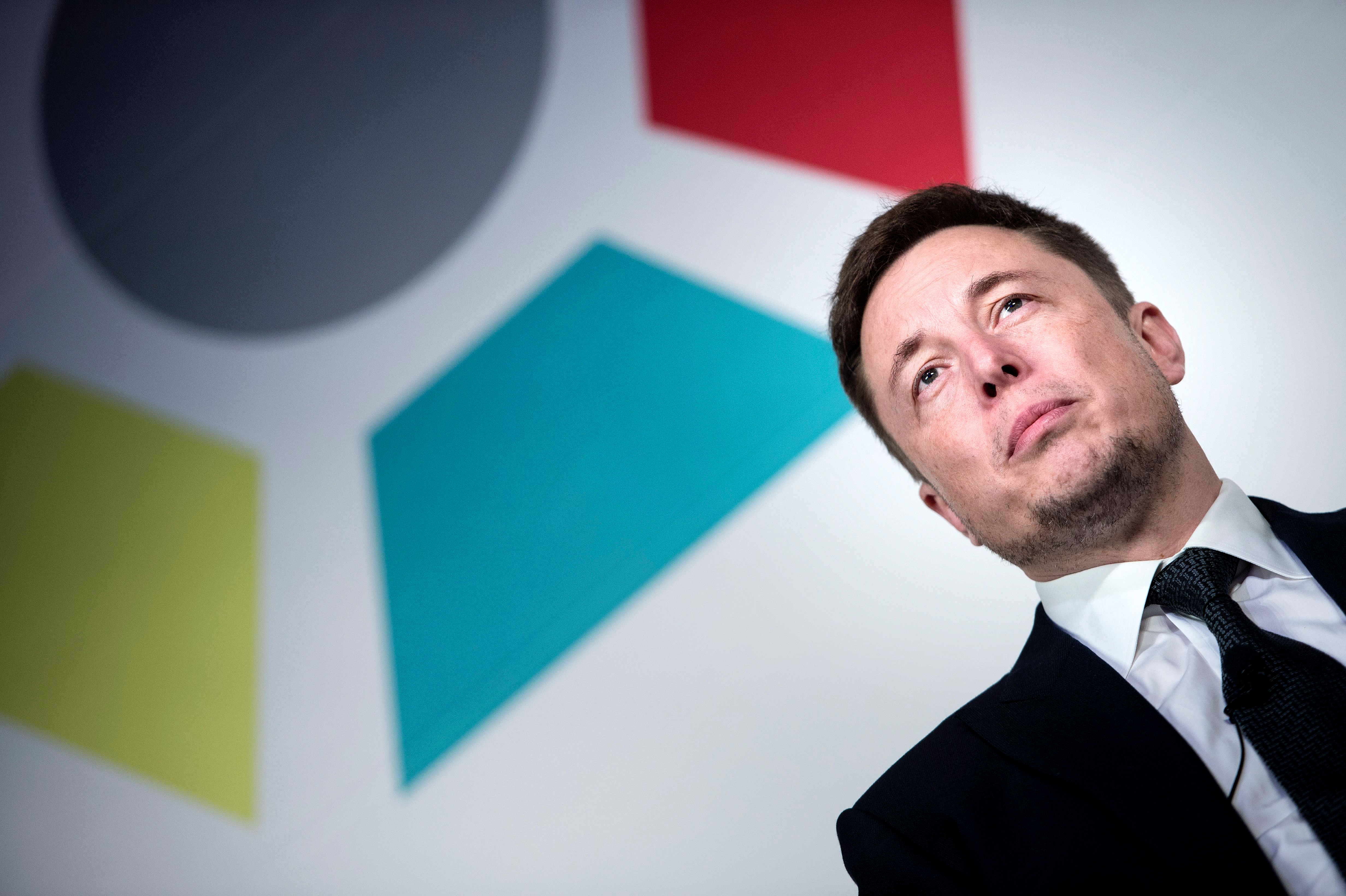Elon Musk is a messianic huckster
And he's selling little more than pseudo-profundity and nostrum


Elon Musk is a goofball techbro whose real business is quack philosophizing, not inventions or engineering.
I realize that the founder of Tesla and SpaceX really does make things, like electric cars and spaceships. But Musk's numerous attempts to realize his gleaming visions of a Jetsons-like future have never come close to living up to the (largely self-manufactured) hype. Lately he has started claiming that he is going to send cargo-laden rocket ships to Mars by the middle of President Trump's second term, in advance of the establishment of a permanent human colony. I'm not holding my breath.
Why have we allowed this lunatic a prominent place in our public and commercial life? Even his name makes him sound like the villain who convinces the Earth Federation in the year 4836 to trade in its fleet of perfectly serviceable if somewhat old-fashioned solar-powered starships for his sleek but shoddily made models that, allegedly, run on nothing but crystals from the planet Flion.
The Week
Escape your echo chamber. Get the facts behind the news, plus analysis from multiple perspectives.

Sign up for The Week's Free Newsletters
From our morning news briefing to a weekly Good News Newsletter, get the best of The Week delivered directly to your inbox.
From our morning news briefing to a weekly Good News Newsletter, get the best of The Week delivered directly to your inbox.
The line between science and science fiction has always been a blurry one. No sooner would Jules Verne write a story about, say, an electric submarine than some genius inventor would will it into reality. The problem with Musk is that he seems willing to calmly accept the reality of every nebulous Star Trek plot device in existence without bothering with the boring part where the thing actually has to work. Even a supercomputer operating on the principle of the so-called infinite monkey theorem could not devise a credible individual repository for all the wild things Musk believes. From the imminence of total human extinction to the perennial undergraduate assertion that, like, maybe we are all living inside in the Matrix, there is no implausible, discredited, absurd-on-its-face theory or cause that Musk has not endorsed with brio.
It would be difficult to think of anyone else who routinely says things as blinkeringly stupid to large audiences as routinely as Musk. Take his most recent pronouncement on artificial intelligence, a favorite subject of his, proffered to the similarly screen-ravaged consciences that attend the annual South By Southwest technology conference in Austin, Texas. "The danger of AI is much greater than the danger of nuclear warheads by a lot," he said. "Mark my words." Call me a Luddite, but I'm just not seeing it. The day when we are all putting on camo and fighting endless guerilla war against our cyborg overlords still seems to me pretty remote, alas.
There is one sense, however, in which I think Musk is absolutely correct about the threat posed by artificial intelligence to the flourishing of human kind. I am talking, of course, about self-driving cars. Just two years ago a bleary-eyed enthusiast in Florida, convinced of the mechanical infallibility of his robotic automobile, decided to ignore the road and watch a Harry Potter movie instead. Tragically but not, one thinks, very surprisingly, he soon collided with a semi truck and died.
Did I mention that the vehicle in question was, in fact, manufactured by Musk's own firm, Tesla? What kind of lunatic expects us all to pay him handsomely for the privilege of climbing into machines he himself considers vastly more dangerous than already existing weapons that could eliminate every life on this planet in a matter of five seconds? What does it mean that in addition to riding in his Terminator sedans and IG-88 minivans of the future he expects ordinary Americans to look forward to the possibility of flying in one of his boutique spaceships to infinity and beyond? At least here on good old terra firma it is at least theoretically possible to jump out of a moving Tesla once you realize that it is hell-bent on bringing your earthly existence to a fiery conclusion. What hope would there be in the cold empty reaches of space when the SpaceX Jupiter module decides that you are a threat to the mission and must be destroyed? I wonder how long it will take to process a refund.
A free daily email with the biggest news stories of the day – and the best features from TheWeek.com
The truth about Musk, though, is that for all his visionary cant there is nothing especially revolutionary about him. He is, in fact, a typical example of a type that is painfully familiar in American life: the shamanic huckster. Such persons have flourished in the fertile soil of this continent and the equally fecund imaginations of our free-thinking citizenry almost since the Mayflower. Sometimes people like Musk convince their fans to follow them into the desert and eat magic mushrooms in between a capella campfire renditions of "Masters of War" and freeform rap sessions on the mysteries of consciousness. Sometimes they see visions of both Jesus and assorted Hindi deities and declare themselves "greater than God." Sometimes they convince the Beatles to go with them to India. Sometimes they just hand out pamphlets outside train stations and bum cigarettes from tired commuters.
Musk is, thank goodness, much closer to the anodyne type of messianic lunatic than to the Jonestown variety. If it weren't for his peddling of high-priced death-traps that federal regulators have so far allowed to traverse our crumbling roads, I would feel comfortable declaring him essentially harmless. As things stand, Musk is someone we should mostly ignore rather than worry about. When the robot overlords somehow fail to take over the digital simulation we all inhabit, even he will be relieved.
Matthew Walther is a national correspondent at The Week. His work has also appeared in First Things, The Spectator of London, The Catholic Herald, National Review, and other publications. He is currently writing a biography of the Rev. Montague Summers. He is also a Robert Novak Journalism Fellow.
-
 Climate change could lead to a reptile ‘sexpocalypse’
Climate change could lead to a reptile ‘sexpocalypse’Under the radar The gender gap has hit the animal kingdom
-
 7 hotels known for impeccable service
7 hotels known for impeccable serviceThe Week Recommends Your wish is their command
-
 6 inviting homes with event spaces
6 inviting homes with event spacesFeature Featuring a Vermont compound with an airstrip and Virginia farm with a party barn
